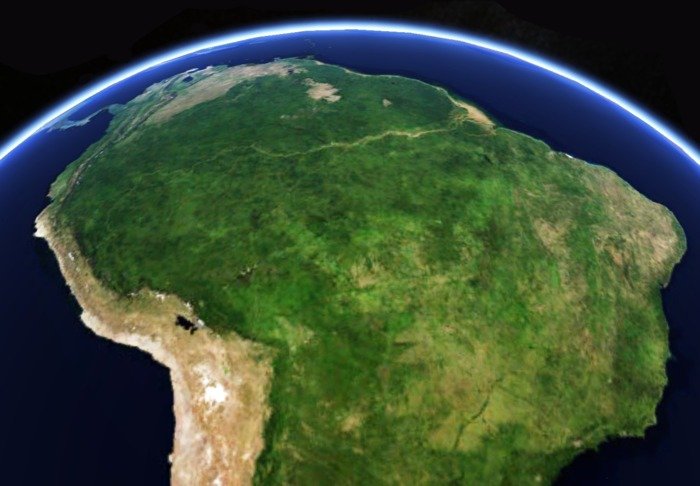Above image was made with the satellite instrument MODIS (or Moderate Resolution Imaging Spectroradiometer) data. It is a key instrument aboard the Terra (EOS AM) and Aqua (EOS PM) satellites.
Credit: Weile Wang
GREENBELT, Md., July 25 (UPI) -- Earth's tropical ecosystems can generate significant carbon dioxide when temperatures rise, unlike ecosystems in other parts of the globe, scientists say.
NASA scientists, as part of an international team of researchers, discovered a temperature increase of just 1.8 degrees F in near-surface air temperatures in the tropics leads to an average annual growth rate of atmospheric carbon dioxide equivalent to one-third of the annual global emissions from combustion of fossil fuels and deforestation combined, the space agency reported Thursday.
The study provides support for the "carbon-climate feedback" hypothesis proposed by many scientists that suggests a warming climate will lead to accelerated carbon dioxide growth in the atmosphere from vegetation and soils.
"Climate warming is what we know with certainty will happen under climate change in the tropics," said Josep G. Canadell of the Global Carbon Project in Canberra, Australia, a co-author on the paper. "Our study indicates that carbon exchanges in tropical ecosystems are extremely sensitive to temperature, and they respond with the release of emissions when warmer temperatures occur."
This implies the release of carbon dioxide from tropical ecosystems will very likely be accelerated with future warming, the researchers said.
Events that can temporarily influence climate, such as volcanic eruptions, may disturb the strength of the relationship between annual temperature and carbon dioxide growth for a few years, but the coupling always recovers after such events, they said.
"What we have is a strong and robust coupling between seasonal variations in atmospheric CO2 growth and tropical temperatures over the past 50 years and this provides us with a key diagnostic tool to assist in our understanding of the global carbon cycle," Canadell said.















